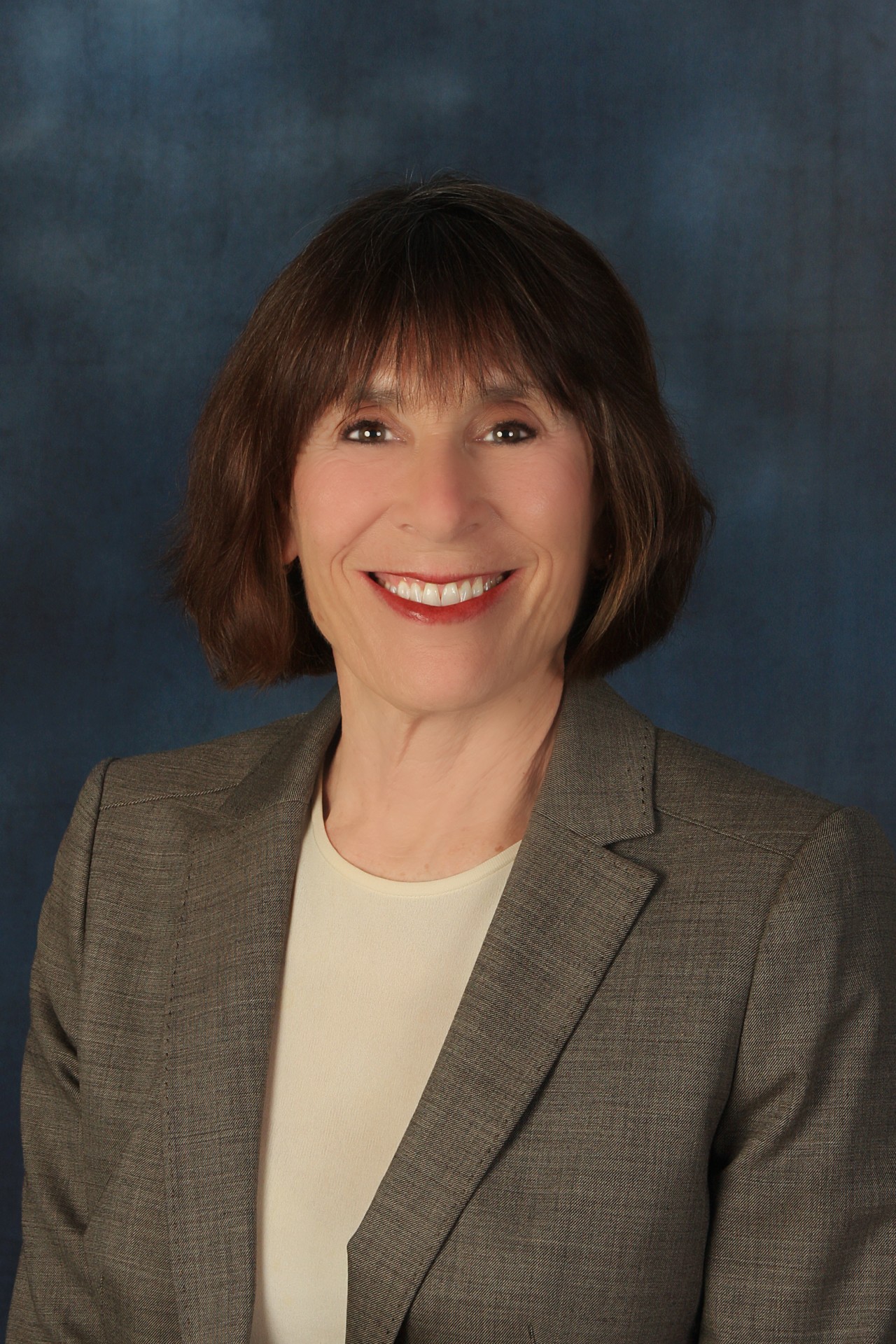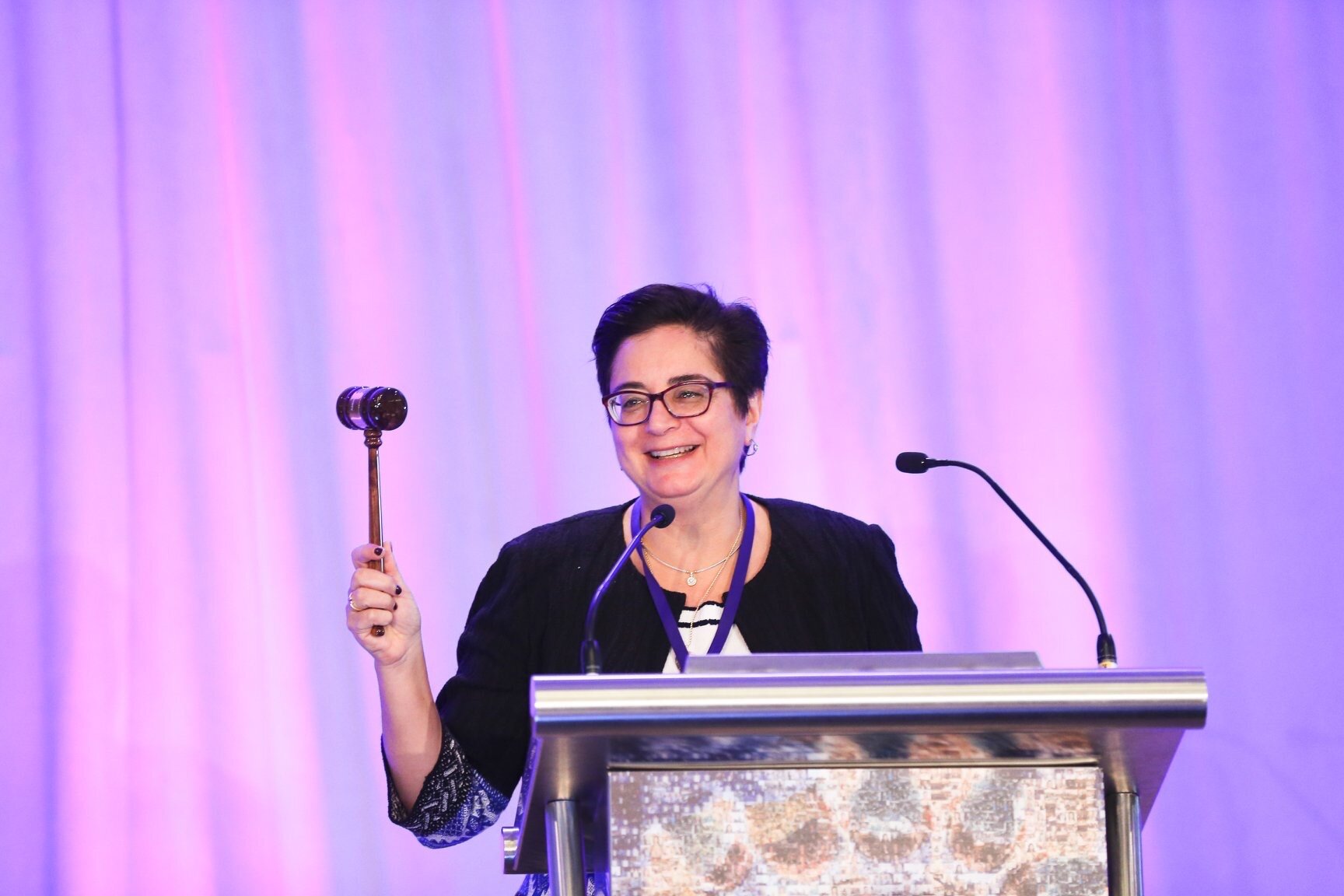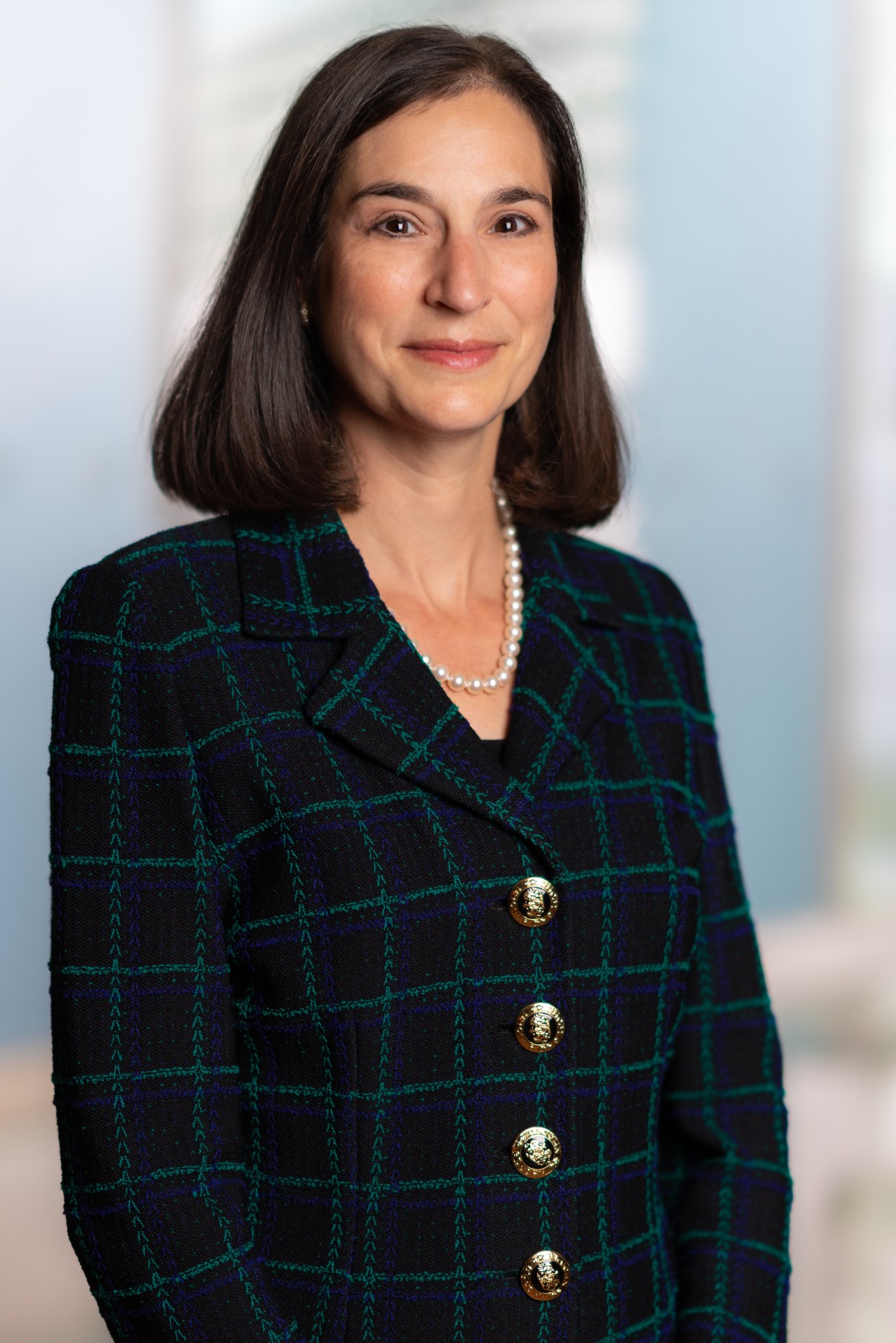In 2019, before health and wellness became ubiquitous talking points because of COVID-19, Barnard affirmed its commitment to community well-being with the Feel Well, Do Well @ Barnard initiative (FWDW) to directly address students’ physical, mental, sexual, and emotional health. The following year, the College announced the creation of the Francine A. LeFrak Foundation Center for Well-Being, which will expand FWDW.
This campus-wide commitment to wellness extends beyond Barnard’s gates to the many alumnae who have pursued careers focused on taking care of others. Below, Carol D. Berkowitz ’65, Sareh Parangi ’86, and Roberta Levy Schwartz ’91 each discuss their work in the world of healing.
Carol D. Berkowitz ’65 | Chief and Distinguished Professor of Pediatrics, Harbor-UCLA Medical Center
In 1978, Carol D. Berkowitz joined the faculty at Harbor-UCLA Medical Center, where she advocates for improved children’s health. “People ask me when I will retire, and I say, ‘When no child is abused, when no child goes to bed hungry, and all children have healthcare,’” she said. “Pediatrics is great because you can really [have an] impact on the trajectory of a person’s life and well-being.”
As a zoology major at Barnard — which she described as “the perfect size for me since my high school in Brooklyn had 5,000 students” — Berkowitz enjoyed being in an all-women’s college. To this day, she can recall trips to the Metropolitan Museum of Art with professor emerita of art history Barbara Novak ’50 and her French classes with Serge Gavronsky and Tatiana Greene. “You could tell they loved their subject, as well as teaching,” said Berkowitz, who went on to graduate from what was then called the Columbia College of Physicians and Surgeons.
As a pediatrician, Berkowitz served on numerous professional societies advocating for children. From 2004 to 2005 she was appointed as one of four physicians to the Medicaid and CHIP Payment Access Commission working under the auspices of Secretary of Health and Human Services Michael Leavitt and tasked with finding $10 billion of scorable savings from the Medicaid budget.
One of her leadership positions stands out to her. “Probably the most prestigious was being president of the American Academy of Pediatrics, an organization of over 60,000 pediatricians,” Berkowitz said. “I love what I do. My life has purpose, and I feel I make the world a little bit better every day.”
Sareh Parangi ’86, M.D. | Professor of Surgery at Harvard Medical School; Chair of Surgery, Newton-Wellesley Hospital; Endocrine Surgeon
Sareh Parangi initially thought she would major in languages and pursue a career as a United Nations interpreter. Not surprising, considering she was fluent in four different languages, including her native language, Farsi. But after taking biology with Professor Paul Hertz and chemistry with Professor Bernice Segal, Parangi was inspired to major in biology and pursue a medical career. Dean Esther Rowland then guided her to enroll at what was then called the Columbia College of Physicians and Surgeons.
“The diversity of what you can do with an M.D. degree is great,” said Parangi, now an internationally renowned surgeon and researcher. “You can do research, take care of patients, perform surgery, write, teach, lead, and so much more.” Parangi’s research on thyroid cancer has led to many FDA-approved drugs to battle aggressive thyroid cancers.
Her interest in research was piqued at Barnard, which funded her summer research internships. “If I hadn’t had that monetary support, I wouldn’t have been able to do research,” she said. “And those experiences showed me how important research is in medicine.”
As a result, Parangi is committed to empowering and increasing the number of women in the field of surgery. “When I entered the field, there were very few women entering surgery,” she said. “Nowadays, 50% of residents at the top prestigious programs who choose general surgery are women, so I feel we have definitely moved the needle there,” she said of her work with the Association of Women Surgeons, whose council she has led.
“Being at Barnard in a community of women — professors, deans, and students — who believe that women can get things done and are confident in their own abilities was super important,” she said. “Without that, I wouldn’t have had the confidence to enter a field where women were underrepresented.”
Roberta Levy Schwartz ’91, Ph.D. | Executive Vice President and Chief Innovation Officer at Houston Methodist Hospital
For the past 20 years, Roberta Levy Schwartz has worked in executive positions at Houston Methodist Hospital, which has been named the top hospital in Texas 10 years in a row by U.S. News & World Report. In addition to overseeing all operations for the 900+ bed academic hospital, Schwartz is responsible for advancing and expanding Houston Methodist’s digital innovation platforms, including telemedicine, artificial intelligence, and big data.
Earlier in her career, she worked as director of business development for NYC’s Mount Sinai School of Medicine, a project manager for several academic medical centers, a fellow for the late Senator Paul Wellstone, and at the Health Care Finance Administration (now the Centers for Medicare & Medicaid Services).
A psychology major at Barnard, Schwartz is thankful for the department’s faculty who supported her in conducting research and created an environment that prepared her for a career in healthcare policy and administration. Professor emeritus of political science Dennis G. Dalton specifically inspired Schwartz to explore a variety of texts.
“Barnard is always about making people think in a broad manner,” said Schwartz. “The critical thinking in politics, sciences, languages, and many other areas was incredible. And, in my major, I took as many healthcare courses as possible, which prepared me for my graduate work in healthcare administration.” That work included a master’s degree in health science from Johns Hopkins University and a Ph.D. from the University of Texas School of Public Health.
Schwartz said that she cannot imagine doing any other job, especially in light of COVID-19. “It is an honor to have a career in healthcare,” said Schwartz. “You get to take care of people at their most vulnerable moments and be a part of their life’s journey.”
—MICHELE LYNN ’82



